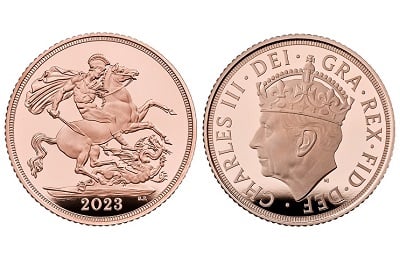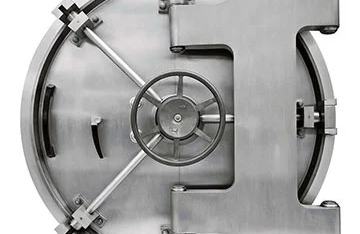Gold vs ISAs
Gold is a popular investment asset, given its strong price gains over the past twenty years and its safe haven status, but investors will often consider multiple prospects. One common choice is an ISA. Both gold and ISAs have tax benefits, but they carry very different risks and rewards. We are often asked about the benefits of gold vs ISAs and the information below will help demonstrate why we believe gold offers the better option for many investors.

What is an ISA?
An Individual Savings Account is defined as a ‘wrapper’ that shields your savings and investments against certain types of taxation.
Everyone has an ISA allowance for the tax year, starting on April 6th, and this is the maximum amount you are allowed to place in an ISA for the next 12 months. Some ISAs run for just a year, while others are continual until you close the account.
Types of ISA
There are several different types of ISA that investors and savers can choose from:
- Cash ISA (Instant Access, Fixed-rate, Regular savings)
- Stocks & Shares ISA (Funds, Gilts, Shares)
- Help-to-Buy ISA (First-time buyers)
- Innovative Finance ISA (Peer to peer)
- Lifetime ISA (First-time buyers or retirement plans)
- Junior ISA
The most common choice is the Cash ISA. This is a simple account that protects savings against income tax, with banks and building societies offering a choice between flexibility in withdrawing/depositing funds, or a fixed-rate where you get a guaranteed rate of interest but limited access to the account.
90% of ISA investment is into a Cash ISA, but the next most popular is the Stocks & Shares ISA. This breaks down into three parts: Funds, Gilts, and Shares. The latter is easy to understand – your money equates to a unit of ownership in a company and your gains depend on that company’s performance – but the other options are a bit more complex. Funds (Active or Passive) are stock market investments. Active Funds have a fund manager making investment decisions and taking a fee for their work, while Passive Funds have no manager and are usually backed by derivatives. There’s less direction, but lower fees. The final option, Gilts, are government bonds issued by the UK Treasury. This makes them relatively low risk, but timing is key – limited demand means you will be offered a good rate, but strong demand and your yield will be poor because the Treasury know they can sell while promising less yield.
ISA Benefits
ISAs are a popular investment choice because they are low risk. Your funds go into an account with a bank or building society and accrue zero tax on the interest your money makes, unlike some other savings accounts. You also don’t need to declare your ISA investments on your tax return.
Specific ISAs have specific benefits. Some Cash ISAs are flexible so that you can withdraw funds and pay back in, so long as the balance matches up afterwards.
The Stocks & Shares ISA is a niche choice, aimed at investors with a greater appetite. Aside avoiding Income Tax, these ISAs also avoid Capital Gains Tax – a tax charged on the profits realised by selling assets such as bullion, stocks, property, and antiques to name a few. The current profit limit before CGT starts being applied is £6,000 (23/24), so gains within this ISA - even if they are above this threshold – are exempt. Given the low returns from a typical ISA however, it would need far greater investment than the current ISA limit of £20,000 to achieve significant gains.
There are also protections in place by the government. The Additional Permitted Subscription means that if your spouse or civil partner dies, you can inherit their ISA on top of your own. The other safeguard is that ISAs are covered by the Financial Services Compensation Scheme (FSCS). This protects your savings up to £85,000 per financial provider.
ISA Allowance
The current ISA limit or allowance set by the UK Government, as of the financial year 2023/24, is £20,000 for ISAs and £9,000 for the Junior ISA accounts. These are the maximum amounts you can put in, and you can only open one type of ISA each financial year.
The ISA allowances are also cumulative: your £20,000 limit applies across however many ISAs you have opened in that year. If you were to place £15,000 into a Cash ISA, you could only place a further £5,000 into any other ISA.
Smart Investment
The differences between gold and ISAs are quite stark. While interest rates have risen, banks have been slow to catch up and offer these rates to their customers. The current rates being offered fall far short of the inflation rate, meaning savings kept in an ISA are failing to keep up with increasing prices.
The graph below shows the performance of £10,000 between 2013 and 2023 in gold, compared to the same investment into a Cash ISA. For the ISA we have used typical fixed ISA rates available in those time periods (ranging from 2.5% to 4.5%). Gold value has been calculated using gold spot price percentage changes.

Gold's performance compared to a Cash ISA between 2013 and 2023
Following an initial dip in 2014 and 2015, gold has since consistently outperformed the returns you would get from an ISA, and from 2019 onwards has made significantly more gains. Had you invested £10,000 into an ISA in 2013, you would have roughly £13,240 as of 2023. The same £10,000 invested into gold, would have doubled your money in 2023, being worth just over £20,000.
Gold has historically been a reliable safe haven in the event of recessions and other economic uncertainty, providing a hedge against inflation. Rare, durable, and internationally recognised, gold is an asset that is easily traded, and its value is easily recognised. Central bank buying has hit record levels of buying at the end of 2022 and looks to be continuing in 2023 – proof that governments see this as a way of safeguarding their national reserves in the event of turbulence.
As mentioned above, interest rates have been rising, and UK rates are expected to increase from the current 4.5% at the time of writing to around 5.5% by the end of 2023. ISA rates may continue to increase accordingly, and it may be possible to find ISAs offering 5 – 6% by the end of 2023. With inflation above 8% at the time of writing however, this would still outstrip the return on your ISA. Interest rates will almost certainly fall after 2023 however, as inflation begins to fall and the global economy heads for a recession, as such, ISAs will likely return to much lower rates in the future.
Gold boasts greater flexibility than ISAs too. With the physical ownership of gold bullion, investors can buy and take delivery of their gold, and sell at a time of their choosing. Investors also have the alternative of secure storage and again, they can choose how long to store it and when to withdraw for delivery or sell direct from the vaults. There is no reliance on a bank or other financial institutions; you buy it, you own it.
As stated previously, ISAs have an annual limit of £20,000 invested and both minimum and maximum amounts per month. Investors also cannot open another of the same type of ISA within the same financial year. Gold has no such limits or cap, and there are no restrictions on how much you can buy or sell. A customer can buy a 1g gold bar for as little as £60 or a 1kg gold bar for around £52,000 at the time of writing but more can be purchased by those who wish.
While ISAs have several benefits in the face of Income Tax and Capital Gains Tax, gold is superior once again. Investment gold is VAT-free and has been (in the UK and Europe) since 2000. British gold coinage – such as the Sovereign or Britannia – are also exempt from Capital Gains Tax, and given that there’s no investment limit for gold, investors can commit far greater funds into gold bullion to take advantage of a favourable market and tax benefits when they so choose.
Financial journalist Martin Lewis, the founder of MoneySavingExpert, summed it up when he spoke on ITV’s This Morning programme late in 2017 to explain the benefits of Cash ISAs: “The general rule, certainly if you’ve got less than twenty grand: an ISA’s pointless unless an ISA pays more interest and an ISA doesn’t.”
- How To Buy Gold
- How to Buy?
- Payment Options
- Delivery Options
- Gold Storage
- Storage at Brink's
- Gold Investment Guide
- Why buy gold?
- Is gold a good investment?
- Why physical gold?
- Best time to buy gold?
- Gold bars vs coins?
- Gold vs Silver
- Gold - Silver Ratio explained
- VAT on bullion
- CGT on bullion
- Legal tender coins
- Top 5 Gold Investments
- Top 5 Silver Investments
- Gold vs ISAs
- Gold vs Buy-to-Let
- Gold vs FTSE 100
- Gold vs Bitcoin
- Where to buy gold?
- Why buy from us?
- Where to sell gold?
- Coin Shops
- Gold Price Forecasts
- Top 10 Gold Producers
- Top 10 Gold Reserves
- Gold Britannia vs Sovereign
- Britannia coin designs
- Sovereign coin designs
- Sovereign Mintages
- Sovereign mint marks
- British coin specs
- What is a proof coin?
- Royal Mint bullion
- The Queen's Beasts
- Royal Mint Lunar Coins
- Bullion Refiners
- British coin mints
- Krugerrands
- Gold Tola - India & Pakistan
- Bullion Index







